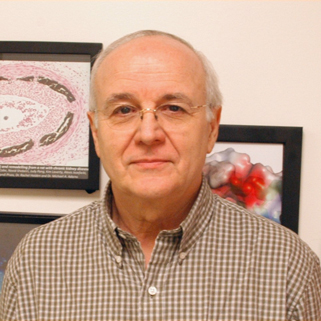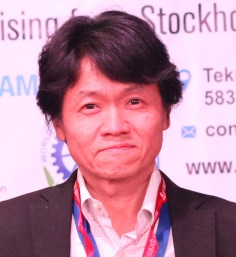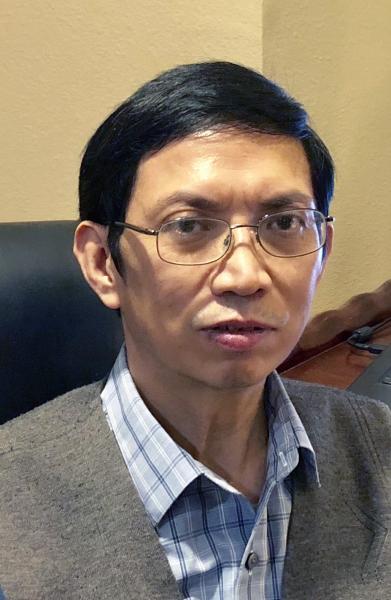Theme: Facts, fictions and future of glycos & lipids: A closure look
Glycobiology Conference 2019
Conference Series LLC Ltd feels great pleasure to invite you all to attend 6th International Conference on Glycobiology, Lipids & Metabolic Disorders (Glycobiology Conference 2019) is going to be held in Chicago, USA on July 29-30, 2019. The conference is going to bring together glycobiologists, scientists, molecular biologists, biochemists, industrial experts, delegates, sponsors and related exhibitors from all around the world to the marvelous city of Chicago, USA. The conference theme focuses on Facts, fictions, and future of Glycos & Lipids: A closure look.
Conference Highlights:
• Glycobiology and Glycochemistry
• Molecular Glycoscience and Monosaccharides
• Proteoglycan and Sialic acid
• Glycoproteomics Analysis and Mass Spectrometry
• Protein engineering and Glycoimmunology
• Glycolipids and Glycopeptides
• N-linked and O-linked Glycosylation
• Glycoconjugates, Glycomics and Metabolomics
• Glycans and Lipids in Cancer, Neuroscience and Vaccine development
• Lipid and Lipoprotein Metabolism
• Protein-Lipid & Lipid-Lipid Interactions
• Lipids in Molecular Medicine and Virology
• Lipids in Signaling and Intracellular Trafficking
• Structural Diversity of Lipids and its Role in Membranes
• Carbohydrate Metabolism Disorders
• Obesity and Nutrition
• Diabetes, Blood Sugar & Glucose Monitoring
• Metabolic Testing and Lipid Profiling
• Cholesterol & Lipid Metabolism Disorders
• Role of Cholesterol in Hypertension and Stroke
• Role of sugars in Galactosemia & Phenylketonuria
• Chronic Myocardial Ischemia, Hypoglycemia & Hyperglycemia
Various members from all around the globe have focused their research and expertise on learning more and more about various biomolecules and use of Glycobiology, Lipids and related Metabolic disorders, so this is a best chance to meet the global participants in the wider arena of Biochemistry to share information, meeting with current and expert researchers and receive name recognition in this two day premier event.
Conference Series LLC Ltd invites all the participants across the globe to attend the 6th International Conference on Glycobiology Lipids & Metabolic Disorders during July 29- July 30, 2019, at Chicago, USA.
Glycobiology Conference 2019 is designed to meet all renowned and eminent speakers, research experts from all around the globe with delegates, exhibitors, and industry experts and workshop symposiums.
For more details: https://glycosummit.conferenceseries.com/
Details of Glycobiology Conference 2019 in Chicago:
| Conference Name | Place | Date |
|---|---|---|
| Glycobiology Conference 2019 | Chicago, USA | July 29-30, 2019 |
GLYCOBIOLOGY CONFERENCE 2019
Track: 1 Glycobiology and Glycochemistry
It involves the study of everything related to the structure, biosynthesis, and biology of sugars and saccharides drawing from simple organic chemistry, molecular and cellular biology, enzymology and related domains. Like amino acids and nucleic acids, sugars are the major contributors in nature many natural products contain oligosaccharides that are important for their biological and biochemical activity and carbohydrates have major roles in a wider range of biological processes including signal transduction mechanisms and immune responses. So the study of glycan structures is also complicated by the lack of a proper and direct template for their biosynthesis, contrary to the case with amino acids and proteins.
Track: 2 Molecular Glycoscience and Monosaccharides
Glycoscience has become a vital, expanding and important extension of modern molecular biology and biomedicine in today’s era. The wider complexity of glycosylated and related structures is only paralleled to their utility. Discovering carbohydrate and glycan antigens as cancer biomarkers or even abnormal glycation pathways in metabolic disorders such as diabetes inhibited the importance of the expansion of glycoscience in a future, as a way of representing new biomarkers and therapeutic targets in disease. The final goal is to enhance research capabilities on glycosciences and provide ground to present and future emerging discoveries in glycosciences into new clinical applications and diagnostics.
Track: 3 Proteoglycan and Sialic acid
Proteoglycans are more than 95% carbohydrate by weight. Proteoglycan helps to provide us with the idea to the molecule's various chemical compositions. As proteo refers to the protein, while glycan represents sugar or a group of sugars, so proteoglycan is a long polysaccharide chain covalently attached to a protein. The protein component of proteoglycans is synthesized by ribosomes and mainly translocated into the lumen of the rough endoplasmic reticulum. Sialic acid is a generic term for the N- or O-substituted derivatives of neuraminic acid, a monosaccharide with a nine-carbon backbone and are found widely distributed in animal tissues and to a lesser extent in some other organisms, ranging from fungi, plants, yeasts, and bacteria, mostly in glycoproteins and gangliosides.
Track: 4 Glycoproteomics Analysis
Glycoproteomics is emerging and booming as an important sub-discipline of proteomics, focusing on the role of protein glycosylation in various biological processes. It focusses on the branch of proteomics that identifies, summarizes, and characterizes proteins containing carbohydrates as a post-translational modification by using Mass spectrometry which is commonly and widely used to identify the sugar moieties attached. Glycomics is the comprehensive study of glycomes the entire complement of sugars, whether free or present in more complex molecules of an organism including genetic, pathologic, physiologic, and other aspects. Glycomics "is the systematic study of all glycan structures of a given cell type or organism" and is a subset of glycobiology.
Track: 5 Protein engineering and Glycoimmunology
Carbohydrates were very important in the early history of immunology in describing the identity of antigens which are recognized by antibodies. So the ability of these antibodies to uniquely recognize glycans and carbohydrate-related molecules was exploited in studies defining the size of the antigen-binding site. Numerous carbohydrate-binding proteins, or lectins, have been identified on the surfaces of immune cells which intensify the importance of carbohydrates in both innate and adaptive immune responses in the development of modern vaccines and immunological therapeutics. Recently glycobiologists and immunologists are now collaborating extensively to explore this crucial field in the area of immunobiology.
Track: 6 Glycolipids and Glycopeptides
Glycolipids are limited in fractions but known to be major and important contributors to glycoconjugates in all areas of life. The structural diversity of glycolipids is exceptional, as different types of lipids are glycosylated in almost every forms of life like animals, plants, and bacteria. Their role basically is to maintain the stability of the membrane and to facilitate other cellular recognition. They act as glycan-carriers in the membranes of photosynthetic structures in, algae, plants, and bacteria.
Glycopeptides are basically peptides that contain carbohydrate moieties generally glycan’s which are covalently attached to the side chains of the amino acid residues that constitute the peptide. These include a class of drugs of microbial origin that are composed of glycosylated cyclic or polycyclic non-ribosomal peptides.
Track: 7 Glycopathology: Glycans in Cancer
Carbohydrates are basically considered as major sources of structural materials and energy for living organisms. Recent modern research’s in this area has focused mainly on simple basic sugars and homopolysaccharides such as starch, cellulose, glycogen, and chitin. During the last few decades, the researchers have shifted their focus on complex forms like carbohydrates, especially proteoglycans, glycolipids and glycoproteins which are collectively referred to as glycoconjugates that shows the potential of recognition markers in the biological system which also relates to other biomedical and clinical fields. The roles of glycans and glycoconjugates in cancer have been emphasized because a small alteration in glycosylation can tremendously regulate the whole pathway and mechanisms of cancer, which leads to an indication as a biomarker development leading to various therapeutics development in cancer research.
Track: 8 Glyconeurobiology: Glycans in Neuroscience
Carbohydrate-rich molecules like including glycolipids, glycoproteins, and proteoglycans in the nervous system have important roles during development, regeneration and synaptic plasticity. The structural diversity of the carbohydrate moieties renders them ideally suited as stage-specific biomarkers for various cell types leading to mediate interactions between recognition molecules, thereby contributing to the formation of a complex molecular framework at the cell surface and in the extracellular matrix of the cell. The exceptional structural diversity of glycan chains and related moieties allows for immense advanced possibilities that can lead to cell interactions along with cell-matrix interactions.
Track: 9 Glycoconjugates and Glycomics and Metabolomics
Glycomics parallel to proteomics and genomics is the systematic study of all the glycan structures of a given cell type or organism and is a subset of glycobiology. Sugars are generally linked to other types of the biological molecule to form glycoconjugates. The various enzymatic process of glycosylation creates sugars or saccharides linked to themselves and to other molecules by the glycosidic bond, finally producing glycans. Proteoglycans, glycoproteins, and glycolipids are the most abundant glycoconjugates found in mammalian cells. Glycoconjugates have been shown to be important and play a prominent role in cell-cell interactions due to the presence on the cell surface of various glycan binding receptors in addition to the glycoconjugates themselves.
Track: 10 Mass Spectrometry in Glycobiology Research
Mass spectrometry (MS) is a vital analytical technique that ionizes chemical species and sorts the ions based on their mass-to-charge ratio. A mass spectrum is a plot of the ion signal as a function of the mass-to-charge ratio during experimental analysis. These spectra are then used to determine the elemental or isotopic signature of a sample for observations, the masses of particles and of various molecules, and to clarify the chemical structures of desired molecules, such as biomolecules, glycopeptides, and other chemical compounds.
Track: 11 Glycans in Vaccine Development
Recent technological advances in the field of glycobiology and glycochemistry are showing the way for a new era in carbohydrate related vaccine design. This is enabling a tremendous efficiency in the synthesis, identification, and evaluation of unique glycan epitopes found on a number of pathogens and cancerous cells. Glycans and related carbohydrate molecules are at the center of many disorders and diseases opening the possibility of exploiting them for therapeutic and diagnostic purposes. There are various biochemical pathways and diseases in which carbohydrates are complexly involved.
Track: 12 Glycans in Diseases and Therapeutics
Glyco-epitope diversity enhances the role of glycan’s and is now considered essential for life, both under normal and pathological conditions. The vital role of glycans in the research and development of diseases and the possible therapeutic use of this class of molecules by describing how the interaction of glycans with growth factors, extracellular proteases, growth factor binding proteins, protease inhibitors, chemokine’s, morphogens, and adhesive proteins regulates inflammation, infection, atherosclerosis, cancer, thrombosis, and embryonic stem cell biology.
Track: 13 Lipid and Lipoprotein Metabolism
Hyperlipoproteinemia is the lipid unsettling influence of significant pertinence clinically as a result of its link with an enlarged danger of atherosclerotic cardiovascular sickness. Since lipids are not solvent in blood, they are transported as lipoproteins after response with water-dissolvable proteins in the blood. Lipids in the blood are consumed by liver cells to give vitality to cell capacities. Overabundance lipids in the blood are in the long run changed over into fat tissue. Unusually elevated amounts of triglycerides and cholesterol are speculated to be involved in solidifying of the corridors.
Track: 14 Protein-Lipid & Lipid-Lipid Interactions
An individual lipid particle will stay in the annular shell around a protein for just a brief timeframe. Tying to the annular shell indicates generally minimal auxiliary specificity. And the annular lipid, there is proof for other lipid atoms bound between the transmembrane alpha-helices of the protein; these lipids are alluded to as non-annular lipids. Voltage-gated channels are key transducers of film potential changes into intracellular homeless people that start numerous physiological occasions. The conformational change mutilates the state of the channel proteins adequately such that the depression, or channel, opens to concede particle flood or efflux to happen over the layer, down its electrochemical angle.
Track: 15 Lipids in Molecular Medicine and Virology
Clinical drugs that connect with membrane lipids and that modify the composition and structure of cell membranes can transform the localization and/or activity of membrane proteins. In general, adjustments in membrane lipid structure are emulated in changes in membrane lipid activity. Several drugs used to fight against cancer, cardiovascular diseases and obesity and other pathologies, determine lipid structure in the plasma membrane and they produce a concomitant alteration in the localization and activity of signaling proteins. The recent studies have resulted in identifying specific disease-provoking gene mutations and have led to improved clinical and laboratory treatments, prenatal diagnosis in lipid-related diseases.
Track: 16 Lipids in Signaling and Intracellular Trafficking
Understanding the mechanisms of intracellular trafficking and its interaction with other signaling molecules may lead to novel approaches in the treatment of a number of hematologic and other diseases. NIH has invested $127,980 in this specific area in 2015.
Lipid rafts/caveolae flagon formed structures are rich in proteins and additionally lipids, for example, cholesterol and sphingolipids and have a few capacities in signal transduction. They assume a part in disease cells advancement, endocytosis and the uptake of pathogenic microorganisms and certain infections. Ponders that have illustrated the part of lipid pontoons in flagging by means of bioreceptor tyrosine kinases and G protein-coupled receptors. The inositol phospholipids frame the basic premise for a mind-boggling interchange of flagging reactions created, most regularly, by receptor actuation and bringing about changes in Ca+2, protein kinase falls, and particle channel/exchanger movement. Phosphatidylinositol (PI) itself is a negligible phospholipid constituent of all eukaryote plasma films.
Track: 17 Structural Diversity of Lipids and its role in membranes
Lipids are a diverse and ubiquitous group of compounds which have many key biological functions, such as acting as structural components of cell membranes, serving as energy storage sources and participating in cell signaling pathways. Lipids may be broadly defined small molecules that originate entirely or in part from two distinct as hydrophobic or amphipathic types of biochemical subunits or "building blocks": ketoacyl and isoprene groups. The huge structural diversity found in lipids arises from the biosynthesis of various combinations of these building blocks. For example, glycerophospholipids are composed of a glycerol backbone linked to one of approximately 10 possible headgroups and also to 2 fatty acyl/alkyl chains, which in turn may have 30 or more different molecular structures. In practice, not all possible permutations are detected experimentally, due to chain preferences depending on the cell type and also to detection limits - nevertheless several hundred distinct glycerophospholipid molecular species have been detected in mammalian cells.
Track: 18 Lipidomics - What’s next?
Lipidomics has been incredibly encouraged by late advances in, and novel utilization of, electrospray ionization mass spectrometry (ESI/MS. Lipidomic concentrates on to assume a fundamental part in characterizing the biochemical metabolism of lipid-related sickness forms through distinguishing adjustments in cell lipid digestion system, trafficking, and homeostasis. The two noteworthy stages at present utilized for lipidomic investigations are HPLC-MS and shotgun lipidomics. Lipidomics not just gives experiences into the particular elements of lipid species in wellbeing and infection, yet will likewise distinguish potential biomarkers for building up preventive or restorative projects for human illness.
Track: 19 Carbohydrate Metabolism Disorders
Track: 20 Obesity and Nutrition
Track: 21 Endocrinology and Diabetes
Track: 22 Cholesterol & Lipid Metabolism Disorders
Market Report:
Glycobiology Conference 2019 welcomes attendees, presenters, and exhibitors from all over the world to Chicago, USA. We are delighted to invite you all to attend and register for the “6th International Conference on Glycobiology, Lipids & Metabolic Disorders" which is going to be held during July 29-30, 2019 in Chicago, USA.
The organizing committee is gearing up for an exciting and informative conference program including plenary lectures, symposia, workshops on a variety of topics, poster presentations and various programs for participants from all over the world. We invite you to join us at the Glycobiology Conference 2019 where you will be sure to have a meaningful experience with scholars from around the world. All the members of the Glycobiology Conference 2019 organizing committee look forward to meeting you in Chicago, USA.
Importance & Scope:
Most aspects of glycobiology depend on successful researches. Glycobiology Conference 2019 aims to bring together leading academic scientists, researchers, and research scholars to exchange and share their experiences and research results about all aspects of Glycobiology leading way to the unraveled. It also provides the chance for researchers, practitioners, and educators to present and discuss the most recent innovations, trends, and concerns, practical challenges encountered and the solutions adopted in the fields of glycobiology.
Glycobiology Conference 2019 is an essential platform for presenting research about marketing, exchanging ideas about it and thus, contributes to the dissemination of knowledge for the benefit of both the academic and business. Glycobiology is where the future intersects. This event brings together eminent researchers and associates to explore the emerging field. We bring together knowledge, creative, and technology leaders from the biology industry for the most current and relevant discussions.
Glycobiology Market Global Forecast to 2019: The Glycobiology market will reach $928.11 million by 2019, growing at a CAGR of 12.62% during the forecast period (2014–2019) and is expected to reach USD 1,211.4 Million by 2021 from USD 649.5 Million in 2016, which is a positive sign in the field of modern era research. This report describes the global Glycobiology market by application, end users, products, and geographies. According to the World Bank and agencies, funding for research and development activities in Asia was about $158.94 billion in 2001 and increased to $329.31 billion in 2010. Similarly, in the U.S.A, overall funding for research and development was about $291.77 billion in 2001, which drastically increased to $428.94 billion in 2010. A number of factors such as increasing focus of government and private funding for Glycobiology and proteomics research and huge investment by pharmaceutical and research companies are the key promoters for the growth of this market. On the basis of the product, the market is distributed into enzymes, instruments, diagnostic kits, and chemical reagents and the enzymes segment like glycosidases, neuraminidases, sialyltransferases, glycosyltransferases, and other enzymes but glycosidases is expected to the major contributor of the Glycobiology research with the largest shares in R&D activities for the development of novel drugs and therapies.
Geographic analysis reveals that North America accounted for the largest share of the global glycomics market in 2014, due to increased funding for proteomics and glycomics research. For instance, in August 2013, the National Institutes of Health (NIH) provided $5.5 million to the National Center for Functional Glycomics (NCFG) for research into the identification of glycans and complex carbohydrates using glycan microarrays. Similarly, in 2011, the University Of Nevada School Of Medicine received $10 million for glycobiology research from NIH.
The major players in this market include Agilent Technologies (U.S.), Bruker Corp. (U.S.), Danaher Corp. (U.S.), New England Biolabs (U.S.), Prozyme Inc. (U.S.), Shimadzu Corp. (Japan), Sigma-Aldrich Corp. (U.S.), Takara Bio (Japan), Thermo Fisher Scientific (U.S.), and Waters Corp. (U.S).
Why to attend???
This conference will be focusing on all the major aspects in the fields of Glycobiology and its related research which is going across the world. It would be beneficial for all the students, research professionals whoever willing to enter into research or doing innovative research to the respective fields. As bringing the major research to the market and making it to the utility are the major focus for all the companies, this conference would be an opportunity for the people in the respective fields. Meeting with members from around the world focused on learning about biological research and growing market, this is your single best opportunity to reach the largest assemblage of participants from the scientific community. Conduct demonstrations, distribute information, meet with current and potential customers, and make a splash with a new product line, and receive name recognition at this 2-day event. World-renowned speakers, the most recent techniques, tactics, and the newest updates in Glycobiology growing market are hallmarks of this conference.
Major Glycobiology Associations around the Globe
Royal Society of Chemistry Carbohydrate Group (UK)
Mizutani Foundation for Glycoscience
The Japanese Society of Carbohydrate Research
Copenhagen Center for Glycomics
Alberta Glycomics Centre (Canada)
Center for Glycobiology (Israel)
International Society of Rare Sugars
ISHAS: International Society for Hyaluronan Sciences
NCGG: National Center for Glycomics and Glycoproteomics
Laboratory of Carbohydrate Chemistry, Institute of Bioorganic Chemistry, Russian Academy of Science
Complex Carbohydrate Research Center (USA)
Consortium for Functional Glycomics (CFG) (USA)
Glycobiology Research and Training Center (USA)
Oxford Glycobiology Institute
Centre for Glycobiology, University of Liverpool
IBS: Institut de Biologie Structurale
Glycoscience Team, National Centre for Biomedical Engineering Science, National University of Ireland, Galway
Major Glycobiology Related Associations
Glycosciences Laboratory
Oxford Glycobiology Institute
Glycobiology Group
Glycotechnology Core Resource
Glycobiology Research and Training Center
Glycomics Center
Resource for Integrated Glycotechnology
Institute of Molecular Biomembrane and Glycobiology
Glycobiology Conference 2018
We gratefully thank all our wonderful Keynote Speakers, Speakers, Conference Attendees, Students, Organizing Committee Members, Associations, Sponsors, Exhibitors and Media Partners for making Glycobiology Conference 2018 the best ever!
The 5th International Conference on Glycobiology & Glycoproteomics, hosted jointly with 3rd International Conference on Molecular Biology & Nucleic Acids by the Conference series LLC Ltd was held during August 27-28, 2018 at Toronto, Canada based on the theme “Swinging trends in analytical and structural glycobiology and their applications”. Benevolent response and active participation were received from the Organizing Committee Members along with Scientists, Researchers, Students and leaders from various fields of Biochemistry, Glycobiology, Proteomics, medical groups, related associations, societies and also from government agencies, pharmaceutical, biomedical and medical device industries.
Conference series LLC Ltd expresses its gratitude to the conference Moderators, namely Dr. Myron R. Szewczuk, for taking up the responsibility to coordinate during the sessions. We are indebted to your support.
Similarly, we also extend our appreciation towards our Chairs and Co-Chairs of the sessions for 2 days, to ensure the smooth proceedings of their respective sessions.
The conference was initiated with the Honourable presence of the Keynote forum. The list includes:
- Myron R. Szewczuk, Queen’s University, Canada
- Richard N. Sifers, Baylor College of Medicine, USA
- Albert M. Wu, Chang-Gung University, Taiwan
- Jun-ichi Kadokawa, Kagoshima University, Japan
The meeting reflected various sessions, in which discussions were held on the following major scientific tracks:
• Glycobiology and Glycochemistry
• Molecular Glycoscience and Monosaccharides
• Proteoglycan and Sialic acid
• Proteomics in Biochemistry and Molecular Biology
• Glycoproteomics Analysis
• Mass Spectrometry Applications and Analysis
• Lipid and Lipoprotein Metabolism
• Glycolipids and Glycopeptides
• Glycopathology and Glycoimmunology in Cancer Research
• Glyconeurobiology: Glycan in Neuroscience
• Glycoconjugates and Glycomics and Metabolomics
• Glycans in Vaccine Development
• Glycans in Diseases and Therapeutics
A very special Thanks to our Sponsors, Ad-Sponsor and Exhibitors to have bestowed and their faith in collaborating with us to make this event a fruitful one. We hope you continue your support in our future endeavors. With the grand success of Glycobiology Conference 2018, Conference Series LLC Ltd is proud to announce the “6th International Conference on Glycobiology, Lipids & Metabolic Disorders” July 29-30, 2019 at Chicago, USA
Conference Highlights
To share your views and research, please click here to register for the Conference.
To Collaborate Scientific Professionals around the World
| Conference Date | July 29-30, 2019 | ||
| Sponsors & Exhibitors |
|
||
| Speaker Opportunity Closed | Day 1 | ||
| Poster Opportunity Closed | Click Here to View | ||
Useful Links
Special Issues
All accepted abstracts will be published in respective Our International Journals.
Abstracts will be provided with Digital Object Identifier by


















